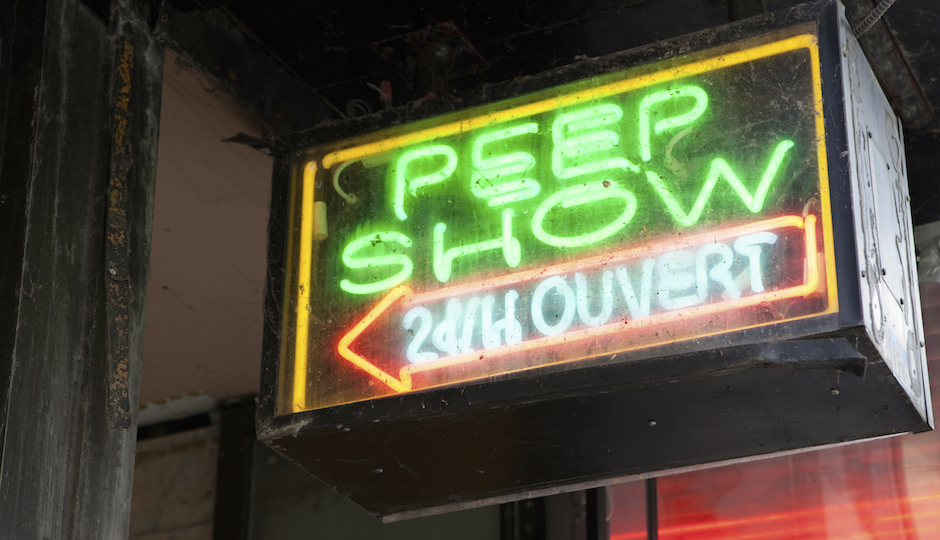Is Stripper Registry Bill a Trojan Horse Meant to Shut Down Nudie Bars?
I don’t like strip clubs.
The first time I went to a nudie bar, I felt like I was watching pornography with a room full of people I would never even want to hug, let alone fire up RedTube.com next to. I decided pretty quickly that my first time would be my last time.
So I can understand why state Rep. Matt Baker might have the impulse to shut down strip clubs. The Tioga County Republican has introduced a bill that would require strippers to provide tons of information — their name, stage name, address, phone number, date of birth, place of birth, height, weight, hair color, eye color, criminal background information, trafficking status and photo ID — to a government registry. He says the legislation is singularly aimed at fighting the horrors of sex trafficking, but truth be told, it also appears to be designed to wreak havoc on the strip club industry.
And the thing is, you can’t just put a place out of business simply because you find it distasteful. I don’t personally like strip clubs (or casinos or pet boutiques) either, but I think they should be allowed to exist.
Usually, I’m loath to suggest that a lawmaker has ulterior motives without some sort of smoking gun. In fact, when I interviewed Baker, I found him to be genuinely concerned about the plight of sex trafficking victims and open to answering my questions about his bill, even though at that point it had already received a bit of bad press. But I think it’s possible that he may believe that one way to combat sex trafficking is to make it harder for strip clubs to do business, or at least that it’d be a nice side effect if some closed down.
Just consider the facts: In addition to creating a Big Government stripper registry, the legislation would also prohibit alcohol from strip clubs and require customers and nude dancers to be six feet apart at all times. No booze? No lap dances? How in the world would that cut back on sex trafficking? It seems like it would merely hurt strip clubs.
When I asked Baker that question, he said, “Prohibiting liquor and requiring that a minimum distance from a customer be maintained is to protect employees from the risks that decreased inhibitions because of alcohol consumption and close contact between performers and customers presents.”
Not exactly a satisfying answer.
His arguments for creating a stripper registry are also shaky, though slightly less so. He points to a recent, horrifying case of alleged sex trafficking to explain how a registry could work. Authorities said that a woman was forced to strip in Philadelphia this month after being promised a modeling job. If a registry had been up and running, Baker said, “the strip club would have been required to determine that she was of age and properly registered with the state to work there; if a victim was not registered, the trafficker would lose the opportunity to force the victim to work in those types of businesses.”
This seems naive. Authorities said the suspects in the Philadelphia case physically removed the victim’s clothing themselves before forcing her to dance. Did managers at the strip club look the other way? Were they part of the sex trafficking scheme? Were they negligent? We don’t know. But it’s hard to imagine that strip clubs that are enabling sex trafficking will care that much about whether their dancers are registered with the Department of State.
At the same time, Baker points out that in sex trafficking investigations, “the availability of information linking people to other people and places is invaluable” to law enforcement officials. And maybe there’s something to that. But a stripper registry would come with lots of risks that must be weighed: Though Baker said the legislation will be amended to prohibit public access, that could always change. And it could be hacked. Or used by the authorities to harass strippers.
I also can’t help but remember that Baker introduced legislation a few years ago that critics said was a Trojan horse — but in this case, they said, his aim was to shut down abortion clinics. It was 2011, and West Philadelphia abortionist Kermit Gosnell had just been charged with eight counts of murder, one arising from a woman’s death and the others from the deaths of seven babies who prosecutors said were born alive at his clinic. (Gosnell has since been convicted of the first-degree murder of three babies.)
At the time, Baker proposed a bill to tighten regulations for abortion clinics, saying it would “provide the highest possible level of health care and safety for women.” It passed against the objections of women’s health advocates, who said the new requirements were onerous, would not do anything to improve women’s safety, and were a ploy to simply shut abortion clinics down. In 2013, almost a year after the new rules went into effect, there were five fewer abortion clinics in Pennsylvania.
At the very least, Baker should scrap his strip club bill, talk to dancers about the merits of a stripper registry (because he apparently didn’t consult them while drafting the legislation), and maybe reintroduce a proposal that would create a registry and nothing else. Or, better yet, he should do something really bold to fight sex trafficking.
The Pennsylvania Family Institute’s Brandon McGinley, who helped draft Baker’s proposal, told the Philadelphia City Paper, “I’m interested in the idea of legalizing sex work but criminalizing buying sex, so the risk is taken on by the john instead of the prostitute.”
Yeah, that would do it.
Follow @HollyOtterbein on Twitter.



